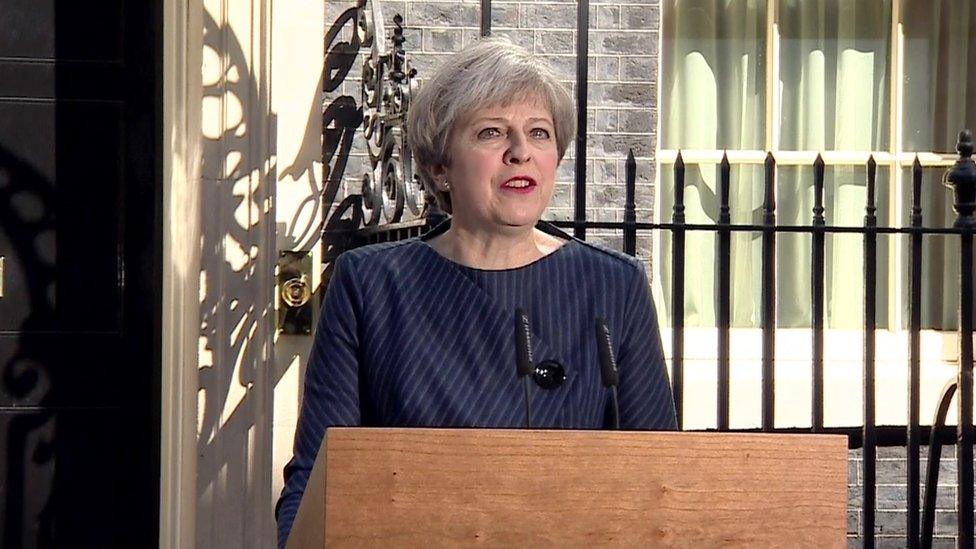'Risky bet or masterstroke?' World media on UK election
- Published
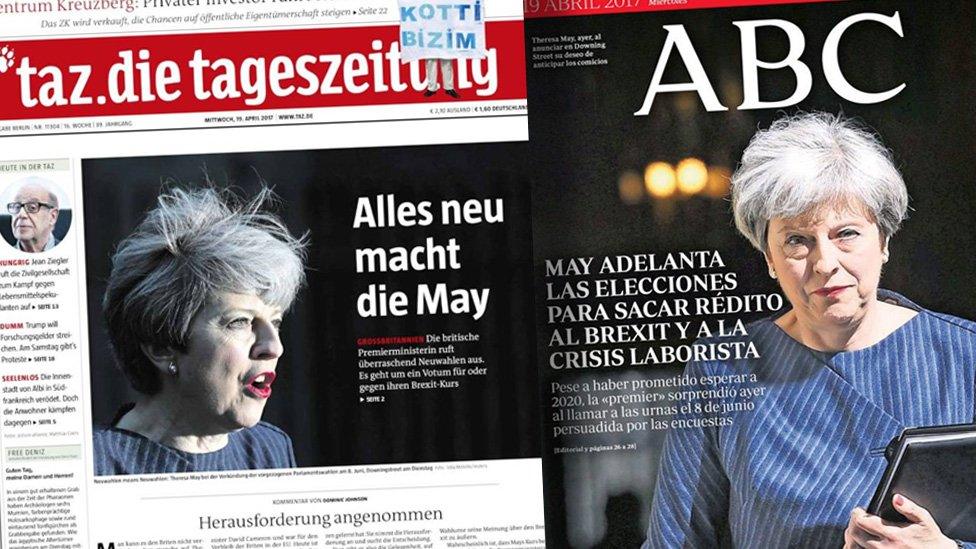
European papers have questioned the main motivation behind the election decision
The British Prime Minister Theresa May's decision to stage a snap general election has been widely discussed in the European press, with some questioning whether the result is as predictable the opinion polls suggest.
There is also debate as to whether the decision was taken in the interests of the UK or the Conservative party, and how the election will impact upon Brexit negotiations.
In Russia, the story was only discussed in more heavyweight broadsheets, while Chinese state media praised Mrs May for a smart tactical move.
France
In Le Monde, external, London correspondent Philippe Bernard says: "She who came to power without having faced the ballot box, following the 23 June 2016 Brexit referendum, decided to treat herself to a type of 'presidential' election in order to be in a position of strength in the negotiations with the European Union."
The headline in Le Figaro, external asks if the decision is a "risky bet or masterstroke?", eventually siding with the latter.
"History will show how Theresa May succeeded in transforming the test of Brexit, which she had not wished for, into a golden age for herself and the British conservatives," the paper says.
Germany
But in Germany's Frankfurter Allgemeine, external, Jochen Buchsteiner believes the result is not as clear cut. In an article headlined "May's big risk", he says "With this snap election, the British Prime Minister hopes to get a strong mandate for negotiations with Brussels. However, despite her popularity the outcome is not certain."
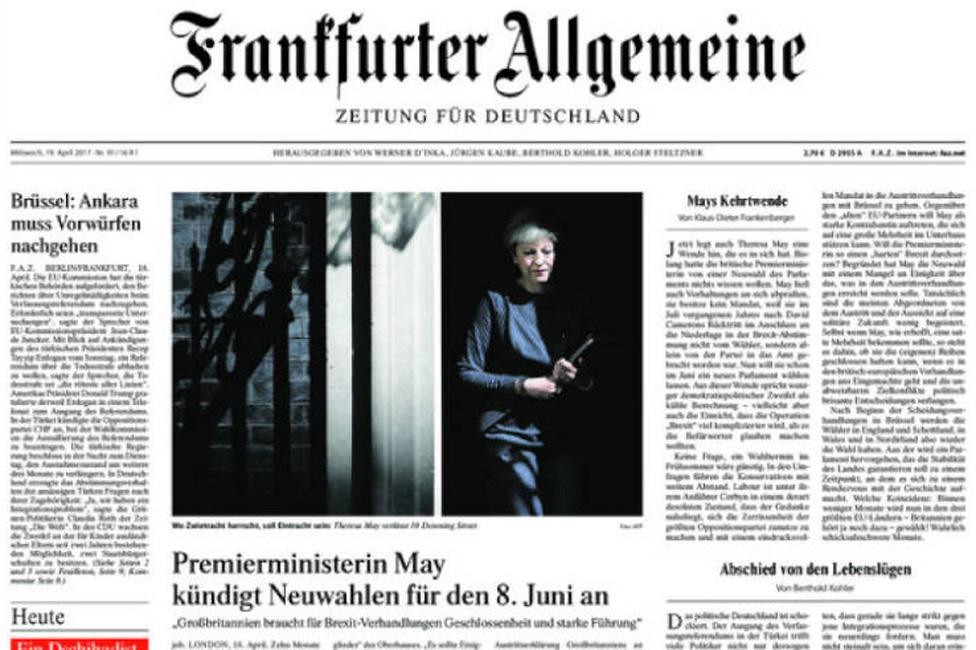
Front page of Germany's Frankfurter Allgemeine
In Der Spiegel, external, Markus Becker says Mrs May is taking a risk in seeking a mandate for a Brexit "blank cheque".
"But the strengthening of May is limited to domestic politics... She must negotiate an agreement on the highly complex details of the exit, prevent the disintegration of the United Kingdom and calm the domestic economy. To achieve this at the same time, in less than two years, has always been extremely ambitious. And now May also wants in parallel to lead an election campaign."
In the Sueddeutsche Zeitung, external, Stefan Kornelius writes: "If the Tories had been honest, they would have let people hold a snap election after the Brexit referendum. Now the procedure endangers political peace - and even the unity of the kingdom."
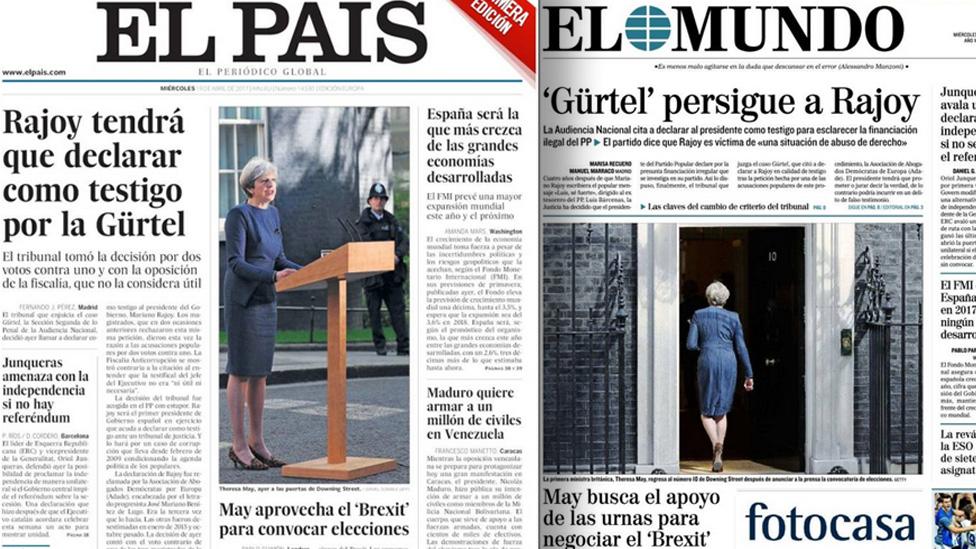
The news made the front pages in Spain
"May will increase her majority, strengthen her power - and weaken Great Britain. What serves her own good does not contribute to the well-being of the country," Kornelius adds.
Spain
An editorial in El Mundo, external says: "Although a bit opportunistic, the decision of the prime minister seems to us timely and courageous." However, the paper takes issue with Mrs May's suggestion that divisions in Westminster are the result of opposition machinations, saying the current situation in parliament "reflects a wound which a daring referendum, called by David Cameron, opened up in society".
El Pais, external says that Mrs May's decision was the result of "baseless optimism" that will only provoke further "bewilderment" among UK voters.
Rest of the world
Yesterday, the Kremlin said it was not interested in the UK election, and this seems to be an attitude reflected in the mainstream Russian media. TV channels did not cover the story last night, despite it being a fairly light news day.
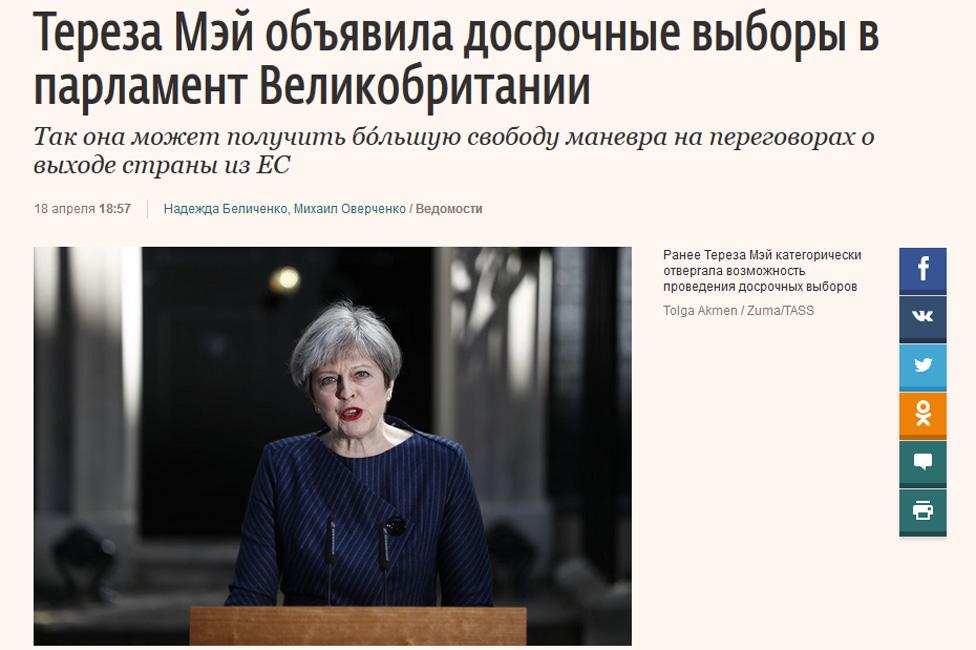
Russia's Vedomosti newspaper
But business newspapers did take a keen interest. In the influential Kommersant , externalnewspaper, Sergei Utkin says that Mrs May wants to ensure that her Brexit strategy is not a product of her own "unmotivated eccentricity".
The Vedomosti, external newspaper says an election victory will give Mrs May "more room for manoeuvre" during Brexit negotiations and allow her to distance herself from Eurosceptics who demand a "severe break in relations with the EU."
In China, state newspapers have predicted greater "unity, consensus and freedom" as a result of the snap election. State broadcaster China Central Television says Mrs May's move will hit "many birds with one stone", and allow the Conservatives to "shake free of the opposition's restraint."
BBC Monitoring reports and analyses news from TV, radio, web and print media around the world. You can follow BBC Monitoring on Twitter , externaland Facebook, external.
- Published19 April 2017
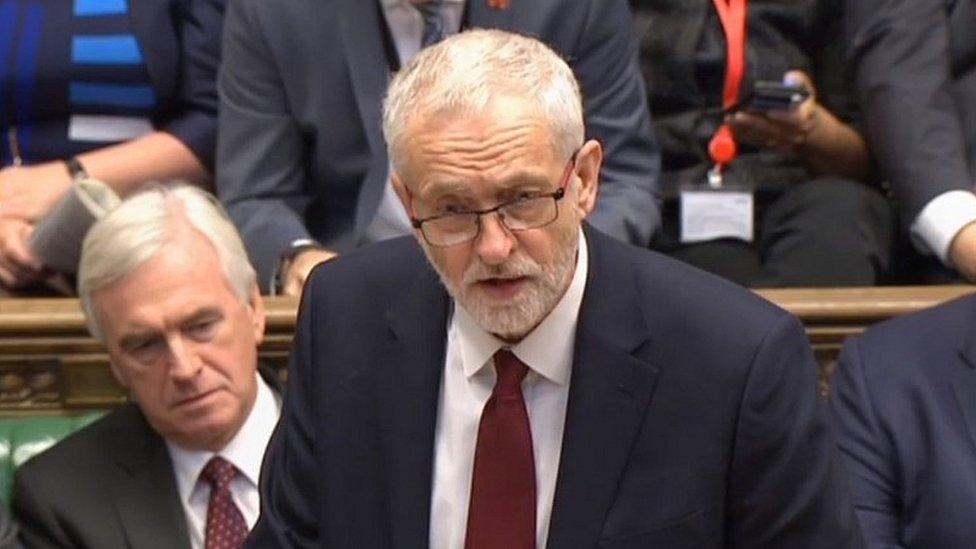
- Published18 April 2017
- Published18 April 2017
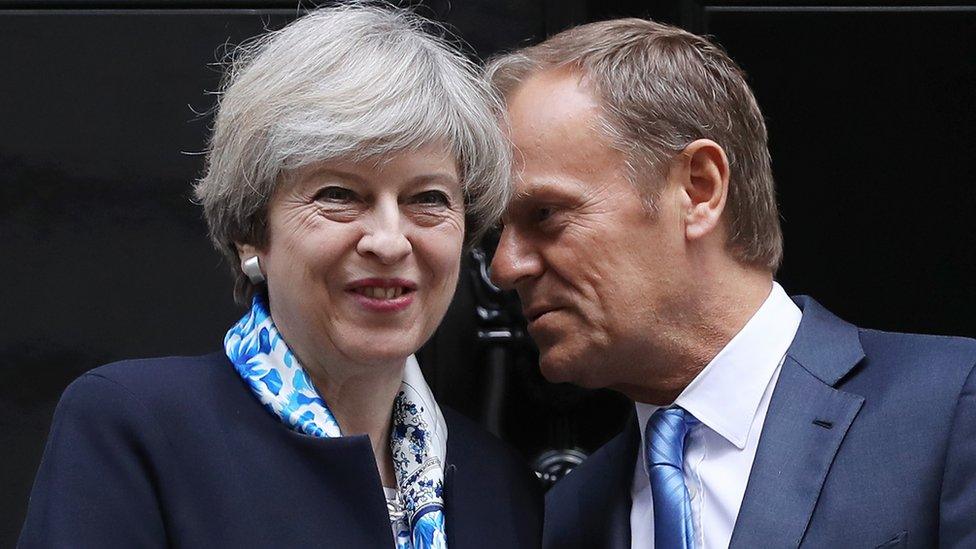
- Published19 April 2017
